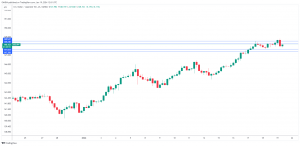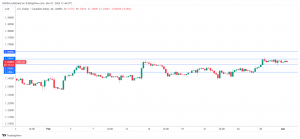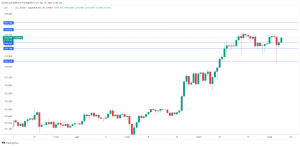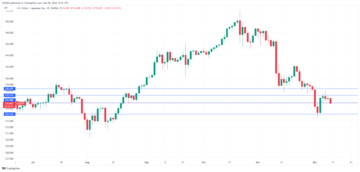Blockchain of Broken Dreams
Crypto traders have been walking a lonely road that no one knows how low it will go. Wall Street has been closely checking the vital signs of the cryptoverse and the good news is that it is still alive. Bitcoin’s shadow is not the only thing rallying today as US stocks bounce back after a disastrous trading week sent it to bear market territory.
For the longest time, it seems bitcoin hodlers were walking on the boulevard of broken dreams. The last part of this historic crypto plunge was not just a de-risking Wall Street moment as many traders start to have a super bad feeling about the economy, but large parts of the crypto markets are seeing stress, including blockchain investments. Surging borrowing costs, margin calls, and excessive leveraged speculation helped accelerate the selling pressure over the past two weeks. The entire cryptocurrency market is seeing some buyers emerge as the selling pressure may have been overdone.
Crypto is not going away and some investors are starting to believe further downside might be limited.
Stocks
Following a long weekend and the worst trading week in almost two years, US stocks bounced back as investors anticipate the Fed will hesitate into tightening policy more aggressively, which is alleviating imminent recession calls. Wall Street is hearing a chorus of central banks (RBA, ECB, and Fed) say they will deliver more rate hikes to fight inflation but hopes remain they will hesitate from sending their respective economies into an immediate recession.
Another round of economic data confirmed the slowdown that is happening throughout the economy, but a complete collapse of activity is clearly not happening. US existing home sales for May shows the housing market is cooling quickly as surging borrowing costs and a weaker consumer weigh on demand. These supersized rate hikes will cause trouble for the housing market and that might help lead some to believe the Fed won’t continue to aggressively tighten policy later this year.
The Chicago Fed National Activity index for May showed a rapid deterioration with economic activity. Sales and employment components remained positive but not necessarily provided optimism that weaker trends for growth will change anytime soon. Sales turned positive after three consecutive negative readings, so many were not surprised by the slight rebound.
- Coinsmart. Europe’s Best Bitcoin and Crypto Exchange.
- Platoblockchain. Web3 Metaverse Intelligence. Knowledge Amplified. FREE ACCESS.
- CryptoHawk. Altcoin Radar. Free Trial.
- Source: https://www.marketpulse.com/20220621/blockchain-of-broken-dreams-stocks-bounce-back-data-shows-slowing-growth-and-not-a-collapse/
- a
- About
- accelerate
- activity
- anticipate
- Banks
- Bear Market
- Bitcoin
- blockchain
- Borrowing
- buyers
- Cause
- central
- Central Banks
- change
- checking
- chicago
- complete
- components
- consecutive
- consumer
- continue
- Costs
- crypto
- Crypto Markets
- cryptocurrency
- cryptocurrency market
- data
- Demand
- dreams
- ECB
- Economic
- economy
- employment
- existing
- Fed
- from
- further
- going
- good
- Growth
- help
- helped
- historic
- Hodlers
- Home
- hopes
- housing
- How
- HTTPS
- immediate
- Including
- index
- inflation
- Investments
- Investors
- IT
- large
- lead
- Limited
- Long
- Market
- Markets
- might
- more
- National
- necessarily
- negative
- news
- part
- policy
- positive
- pressure
- provided
- quickly
- recession
- remain
- remained
- road
- round
- sales
- Selling
- Shadow
- Signs
- Slowing
- So
- some
- speculation
- start
- Still
- Stocks
- street
- stress
- The
- thing
- three
- throughout
- time
- today
- Traders
- Trading
- Trends
- trouble
- us
- vital
- walking
- Wall Street
- week
- weekend
- weigh
- year
- years















